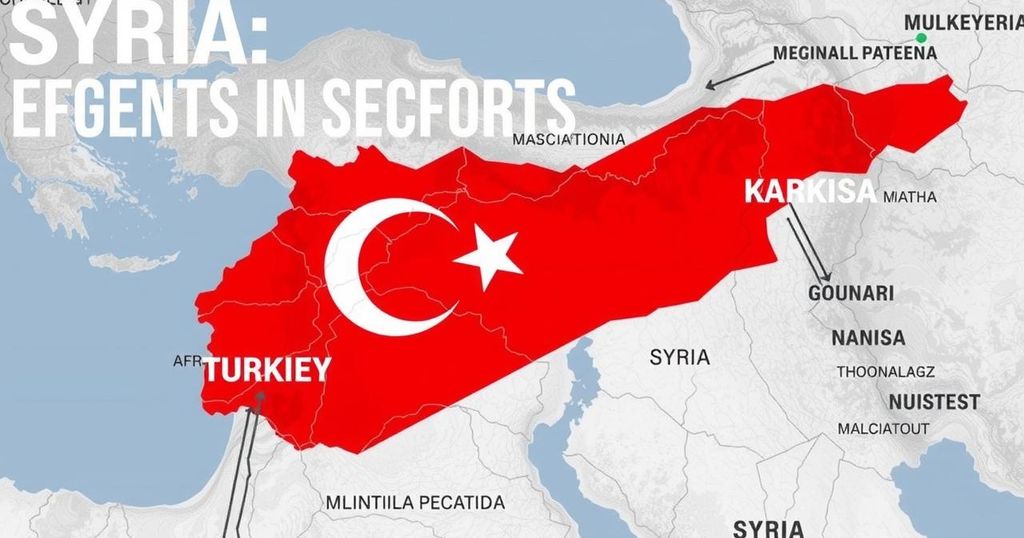The discourse surrounding Turkey’s perceived victory in Syria is premature, as the complexities of the situation highlight significant challenges. While Turkey maintains advantageous positions through alliances with local groups, its influence is contested by other regional powers and persistent issues like Kurdish nationalism. A nuanced understanding is essential to grasp the evolving dynamics in Syria post-Assad.
Recent commentary suggests that Turkey has emerged victorious in Syria following the fall of President Bashar al-Assad, yet such claims may be premature. While Turkey has certainly positioned itself favorably through its alliances with groups like Hayat Tahrir al-Sham (HTS) and the Syrian National Army, crucial obstacles impede its ability to fully claim victory or establish a strong influence in Damascus. Turkey aims to leverage its proximity and infrastructural expertise to win reconstruction contracts; however, its power in the region is contested.
The narrative that Turkey has won in Syria largely depends on HTS and its militias being credited with the fall of Aleppo, which catalyzed Assad’s flight. Turkey’s initial strategy was to use this offensive to pressure Assad into negotiating normalization rather than to oust him outright. With HTS and other Syrian factions gaining power, they may not rely on Ankara as they once did, complicating Turkey’s position.
Despite Foreign Minister Hakan Fidan’s visit to Damascus soon after the regime’s fall, other nations have also sought connections with HTS leaders and the new Syrian administration. This influx of international interest highlights a significant Turkish weakness, suggesting that while Turkey has influence, it is not the sole powerbroker in Syria.
Moreover, Turkey’s ambitions are complicated by the enduring issue of Kurdish nationalism. Turkish leaders view the potential weakening of Kurdish forces as a strategic opportunity; yet, historical difficulties in combating the PKK terrorist organization imply that such a venture may not yield success. HTS may even be less cooperative with Turkey’s goal of dismantling Kurdish forces, further indicating limitations in Ankara’s influence.
Declaring Turkey as the undisputed victor conveys an overly simplified view of the geopolitical landscape in Syria. This narrative neglects the ongoing interplay among regional powers, each vying for influence in the evolving situation. History has shown that Ankara has miscalculated its strategies in Syria repeatedly. While Turkey may have critical assets at its disposal, it is too soon to proclaim a definitive victory.
The article analyzes Turkey’s position in the wake of the political upheaval in Syria following the fall of Assad. It emphasizes the optimistic narratives promulgated by some analysts regarding Turkey’s newfound influence while also addressing the complexities and challenges faced by Ankara. This context involves examining Turkey’s historical involvement in the Syrian conflict, its partnerships with local militia groups, and its attempts to navigate relationships with various external actors amidst shifting power dynamics.
The complexities surrounding Turkey’s engagement in Syria indicate that while it has gained some significant advantages, declaring a clear victory is misguided. With competing interests among regional powers and persistent internal challenges, including the Kurdish issue, the situation remains fluid. Policymakers should recognize the precariousness of Turkey’s position and avoid oversimplifying the outcomes in the Syrian theatre.
Original Source: foreignpolicy.com






